There are longstanding relationships between Duke University and North Carolina Central University in many academic endeavors, but a particularly fruitful partnership has emerged between the two institutions as they have collaborated on digital humanities practices and projects. Since 2016, the John Hope Franklin Humanities Institute (FHI) at Duke has worked with a series of NCCU DH Fellows, and three of those fellows have also worked with Duke’s Humanities Unbounded initiative. Candace Bailey, Collie Fulford, and Kathryn Wymer reflected on how some of their DH experiences at both NCCU and Duke have impacted their professional development as faculty members.
You have been an NCCU-FHI Digital Humanities (DH) Fellow as well as the recipient of a Duke Humanities Unbounded (HU) Fellowship. How have these opportunities contributed to your professional development?
Candace: The DH fellowship introduced me to a world of technology that I could use for teaching purposes, from simple ones (StoryMapJS) to more advanced (Omeka). The HU fellowship has given me the opportunity to take the proverbial deep dive into all that it takes to construct a digital project—the behind-the-scenes work. Both have enhanced my career in separate directions.
Collie: During the DH fellowship, about 90% of my learning directly related to experimenting with teaching approaches. When I became an HU Fellow, about 90% of the opportunity directly supported my growth as a self-directed researcher. I identify as a scholar-teacher because these domains inform each other deeply. With both fellowships, I have dramatically expanded the communities of practitioners that I belong to in different areas of my scholarship and teaching.
Kathryn: I’m just about to embark on the HU fellowship next year; I’m really excited about it! As for the original DH fellowship, I think that it helped me put my work into context. I have been researching, writing, and teaching with and about technology for a long time. Nevertheless, I think I had some imposter syndrome about “belonging” to the DH community, especially since when I started the work at UNC years ago we were calling DH by a different name! The collaboration with Duke really helped me understand the context for my work and its value. For that I’m very appreciative.
What is an important lesson you have learned about DH that you think other faculty members should consider as they begin DH projects?
Candace: DH projects? Structure, personnel, and all the pre-planning that is necessary for viable work. I had no clue before the HU fellowship, but now I see that it is not simply a scholar working out a project. It requires a team of people with specialties in different aspects of the production.
Collie: Forget about perfection. Digital works are inherently works-in-progress. I mean, think about a website. If it’s done, it’s dead. The same is true for a lot of digital genres. They are most alive while we are working on them.
Kathryn: I like both of those points a lot! It’s hard to whittle it down to one piece of advice, but I think I’d say definitely start small. It’s not just okay but actually better practice to do a test run or to experiment in a small way with an idea before you try to grow the project. Starting small is good advice for anyone, but researchers who have higher teaching loads or reduced access to equipment should recognize that small-scale work is very valuable. Don’t let a lack of resources keep you from trying a good idea. The concept of starting small can be especially valuable to independent scholars or those of us who work at HBCUs or SLACs.
DH often requires us to work in teams. Who are some of the people you have worked with on your projects?
Candace: Exactly! Liz Milewicz and Will Shaw in Duke Libraries, and Hannah Jacobs in the Digital Art History & Visual Culture Research Lab (Wired! Lab) at Duke.
Collie: NCCU faculty Russell Robinson, Matt Cook, Brett Chambers, and I have collaborated on DH workshops in Pakistan along with Victoria Szabo (Research Professor of Art, Art History & Visual Studies at Duke) and Hannah Jacobs at Duke. Amanda Gould and Sylvia Miller from Duke’s FHI, and Hannah Jacobs have helped me advance my DH-related scholarship significantly.
Kathryn: I have to say that all of these people would be on my list and too many more to name. I think it’s really important to recognize, as you all are doing, the roles that librarians, support staff, IT specialists, fellow faculty members, graduate students, and community members play in any DH project.
What would you like to see happen with DH at North Carolina Central University in the next few years?
Candace: As we move forward at NCCU, I would like to see a much more robust investment in digital humanities framework at the institutional level. I think this is necessary for both our faculty to remain viable and competitive for future funding and to remain current and effective as scholars, as well as to prepare our students for future endeavors, particularly humanities majors. I don’t think that the answer lies merely in the hardware itself, but rather in the personnel infrastructure that can help us make the most of our potential. We need people who have been trained in project management and development, we need software specialists, and we need to partner more with NCCU’s School of Library and Information Sciences in order to tap into mutually beneficial resources. The human architecture for support, advice, and grant assistance is as critical, possibly even more so, than acquiring computers, tablets, etc.
Collie: I’d like to be in the room again with people to share ideas, to cross-pollinate. HBCUs are important sites of critical DH work that prioritizes racial justice. Our projects can be any mix of public-facing, discipline-relevant, interdisciplinary, and justice-oriented, any mix of pedagogical and scholarly. All of this is more powerful when done in community. When I am next to my colleagues from other fields, and I hear what they are creating and why, I get inspired. They make me feel more invested, braver, and more responsible. That’s why what I’d like to see with DH at NCCU is more occasions for our growing DH community to work side by side. I’d also like us to have dedicated in-house technical coaching to support us in realizing our ambitious project ideas.
Kathryn: I’ll just say that I think we are moving in the right direction. Before COVID-19, we had opened the doors of our NCCU Digital Humanities Lab. Working together in that space has not been possible in the way we have wanted over the last year, but I do think that we will be back there soon. The College of Arts, Social Sciences, and Humanities has been a steadfast supporter of our work, and we have been applying for national grants. As our research profile grows, I’m confident that NCCU will continue to support DH.
What are some projects that you have developed from your recent work?
Candace: I have a website and am working on a large Omeka S site that is not public yet but will be soon. My book Unbinding Gentility: Women Making Music in the Nineteenth-Century South was published in April 2021 by University of Illinois Press.
Collie: I’ve led a series of adult undergraduate research teams, two with my NCCU colleague, Stefanie Frigo. Charity Rin Philips, a multitalented NCCU undergraduate, designed the website for our Adult Student Research Collaboration. More than 30 students have been involved in three different studies under that umbrella.
Kathryn: Thinking about pedagogy and DH helped me write my book Introduction to Digital Humanities: Enhancing Scholarship with the Use of Technology available in April 2021 from Routledge. I’m also writing a chapter with Hannah Jacobs, Russell Robinson, and Victoria Szabo for a new volume on DH pedagogy, which should be out soon. In it we consider how important collaboration between our two institutions has been with a special focus on NCCU as a Historically Black University.
Many thanks to Candace, Collie, and Kathryn for taking the time to share their insights.

